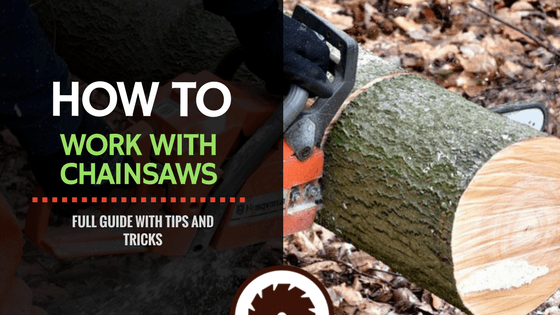
How to Work with Chainsaws: Full Guide With Tips and Tricks
Chainsaws provide homeowners the opportunity to trim their tree gardens and cut firewood without engaging professionals. However, first-time users get apprehensive when using the tool, citing safety concerns. Of course, improper use of these machines can be hazardous; loss of limbs, injuries to the neck and head, and even death. I thought I’d put together an article to help beginners understand how to work with a chainsaw safely to cut trees, and logs.
Table of Content
Chainsaw Tips for Starters
Most chainsaws come dismantled, which gives users the opportunity to get hands-on with the tool. You can begin by fitting the chain and the bar. It's pretty easy as you just need to remove the cover, wrap the chain around the bar, and reattach the cover while tightening the chain to the appropriate tension. Wear protective gloves to avoid getting cut. It is also important to master critical aspects of a chainsaw:
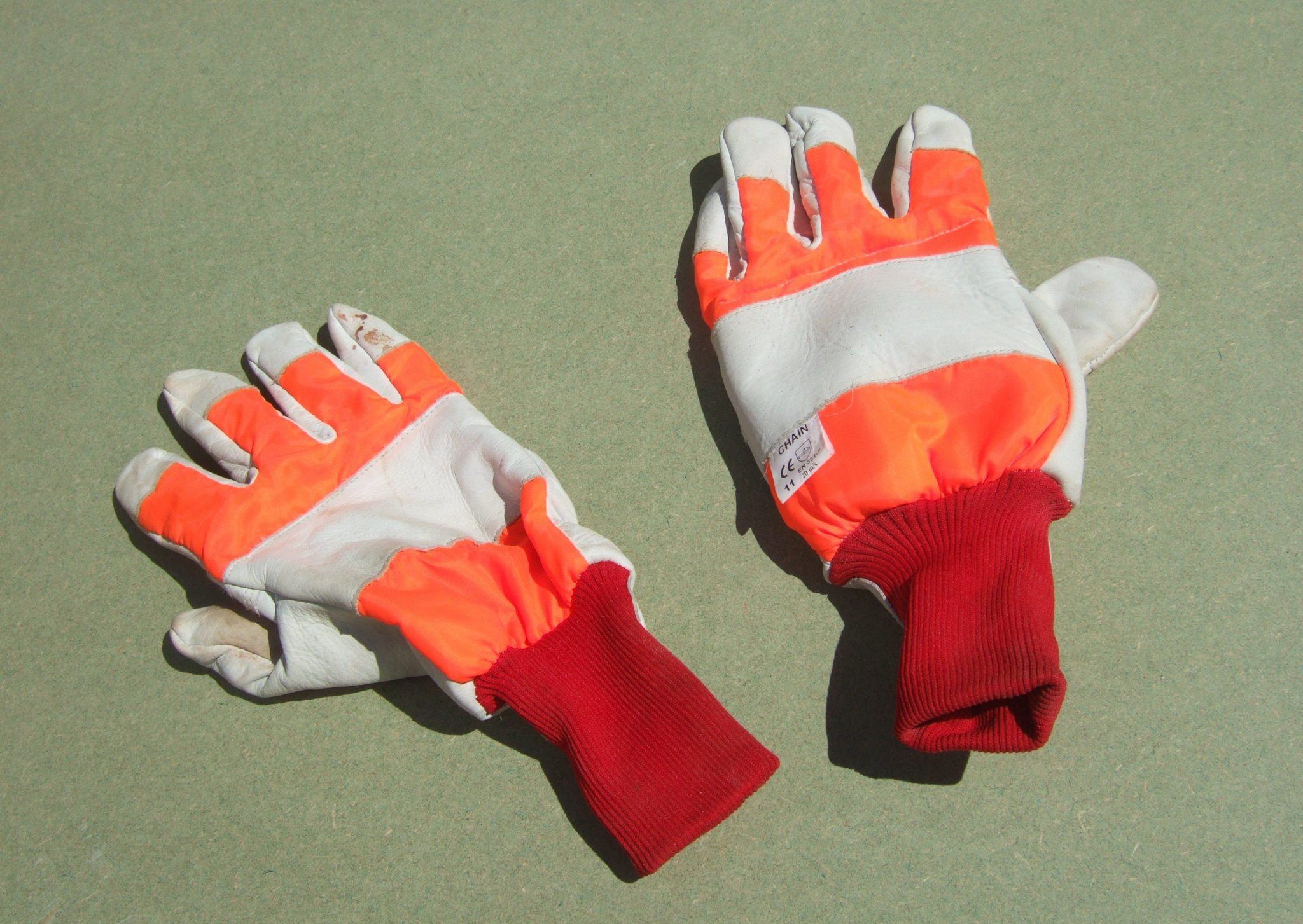
These are just a few chainsaw tips for beginners to feel confident when handling a chainsaw. There is a host of other activities that beginners need to learn when using chainsaws.
How to Cut Using a Chainsaw in 2018
You first need to get acquainted with the three basic tasks that come with operating the machine: bucking, limbing, and felling. Bucking involves cutting the cut tree trunk to length while limbing is the removal of the branches of the cut tree. Felling involves skillfully cutting the tree so that it falls where it is expected, so it is important that you take the appropriate precautionary steps before doing it.
Before discussing limbing, bucking, and felling, you need to know how to cut with a chainsaw. You begin by checking the controls, bar, handles, the chain's tension and sharpness. Be sure to fill the oil and gas reservoirs before using the saw.
Starting the chainsaw
Basically, there are two techniques used to start a chainsaw; on the ground and between your legs. Ensure the chain brake is engaged and the choke is closed for both methods.
If you are starting the chainsaw while on the ground, lay it on the surface and hold the handlebar using the left hand.
Afterward, place the right toe on the handle where the trigger is and yank the starter rope.
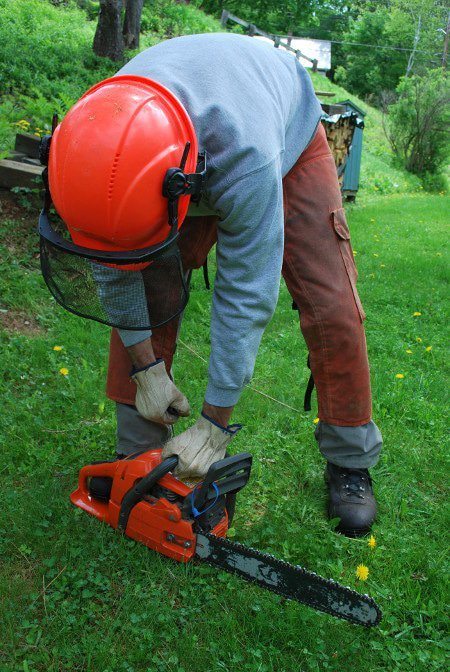


Several pulls should get the saw popping; at this point, deactivate the choke and pull the starter rope. The chainsaw should start.
If you are starting the saw between your legs, be sure to position the rear of the saw against the right leg while tilting it to the right.
After that, follow the procedure discussed earlier.
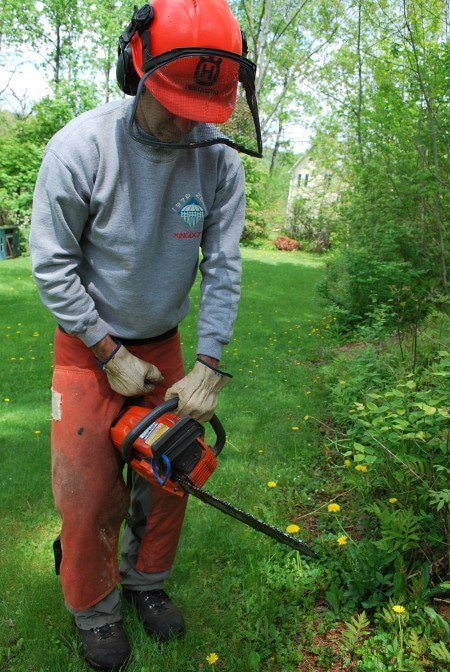


How to Work with a chainsaw to Cut Down a Tree
When you are using a chainsaw to cut a tree, it is important to plan for the fall. These steps should help you know how to use a chainsaw to cut down a tree:
How to Work with a Chainsaw to Cut Logs
Begin by trimming any branches on the log. A sixteen-inch chainsaw provides ample cutting speed, power, and capacity without being too heavy. You can then cut the log into small pieces (16 inches long) for use in fireplaces or woodstoves. Be sure not to cut the log all the way if it is lying on the ground. As such, make a shallow groove into the wood and space them evenly without busting out the tape measure.
Don't cut the log using the nose as it may cause a kickback. Place the motor housing on the end of the log and let the bar lie flat on the log. When you have cut ¾ of the way through the log, roll it 180-degrees and cut through the remaining quarter.
How to Work with a Chainsaw to Cut Large Logs
How to Cut Firewood
The best way to cut firewood to length is to slice the log into eight-foot logs. The standard length for cutting firewood is sixteen inches. These steps should guide you through the process:
How to Work with an Electric Chainsaw
Electric chainsaws are ideal for light landscaping duties like pruning and trimming branches and felling small trees for firewood. The only downside to using electric chainsaws is that it is less powerful when compared to regular gas-powered chainsaws. Additionally, it has to be tethered to a power extension cord, which limits your scope of work. Here's how to use an electric chainsaw:
How to Work with a Chainsaw Safely
Before using a chainsaw, read the owner’s manual to understand the safety features and all the controls. Knowing how to use a chainsaw safely also involves wearing protective gear for ear and eye protection, hard hat, heavy-duty gloves, long pants and a long-sleeved shirt, and a pair of sturdy boots.
A chainsaw helmet comes fitted with a mesh face shield, and flip-up earmuffs may come in handy. You need to hold the front handle using the left hand with the thumb wrapped underneath when cutting. Note that the saw cuts best when the engine is activated at full throttle.
Techniques for Bucking
Chainsaw techniques for bucking involve cutting the tree into log segments that are usually required by mill requirements. The cuts are made in squares to measure the length of the log and maintain its value. Safe tree bucking requires you to determine the direction that the log pieces will move after the cut.
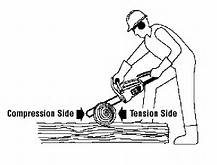


It is only possible by cutting the compression wood first as it allows the log to move towards the direction of tension. When bucking large logs, make several cuts to release tension wood; for small logs, however, two cuts are enough. The first bucking cut should be shallow, as it is intended to severe a short length of compressed wood. The second cut should release the tensioned wood.
Tree Cutting Methods Using a Chainsaw
There are two tree cutting techniques with a chainsaw; slicing upwards and downwards. Most trees are cut by placing the chainsaw above the wood and cutting through it. Gravity pulls the cut piece away from the tree, so you can continue this way.
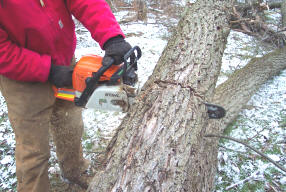


However, when the tree trunk is under tension, cutting from the top down causes the wood to pinch and may get stuck.
As such, it is best to cut upwards by placing the saw under the wood and cutting upwards through it. Using a plastic wedge helps keep the large log from pinching the saw chain.
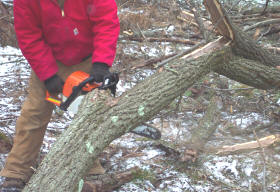


Conclusion
I hope you enjoyed this tutorial and found it useful. I found it especially important to know how to use a chainsaw properly after a storm knocked down one of the trees in my yard. Getting professional help during the winter can be pretty difficult at times, so I thought it’d be useful to help others learn a few basic DIY tips on how to use a chainsaw properly. Don’t hesitate to leave a comment if you have any doubts or suggestions, and please don’t forget to share this article if you enjoyed it!
